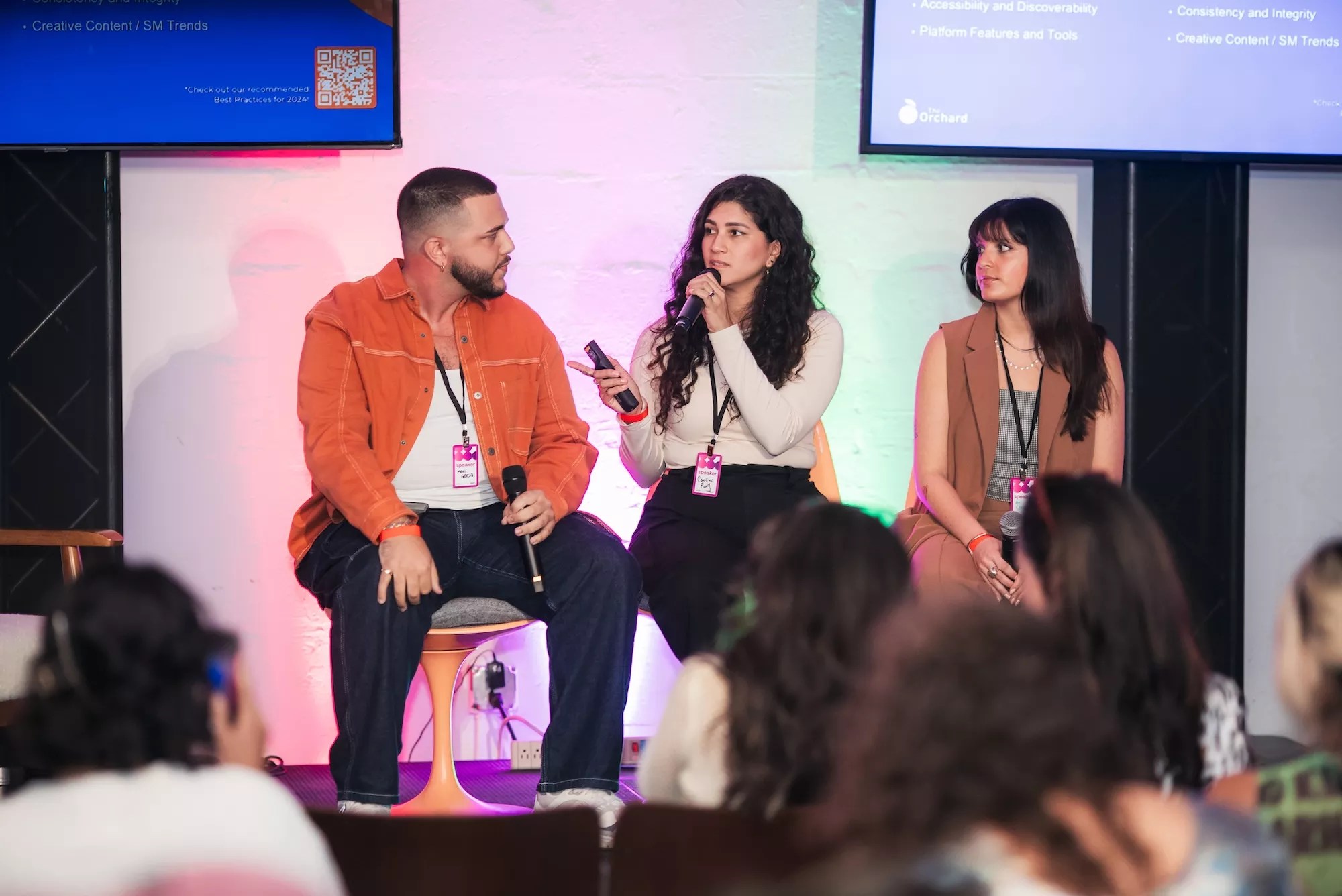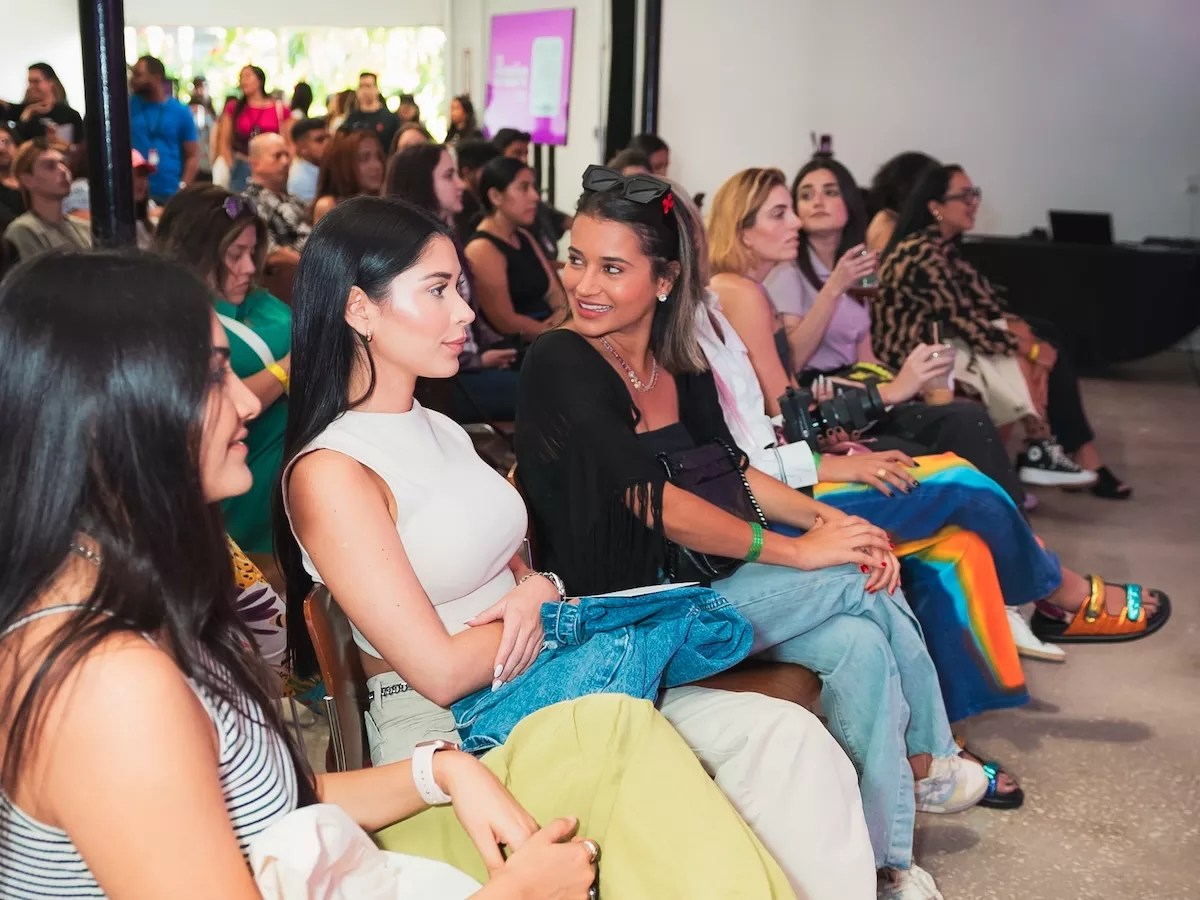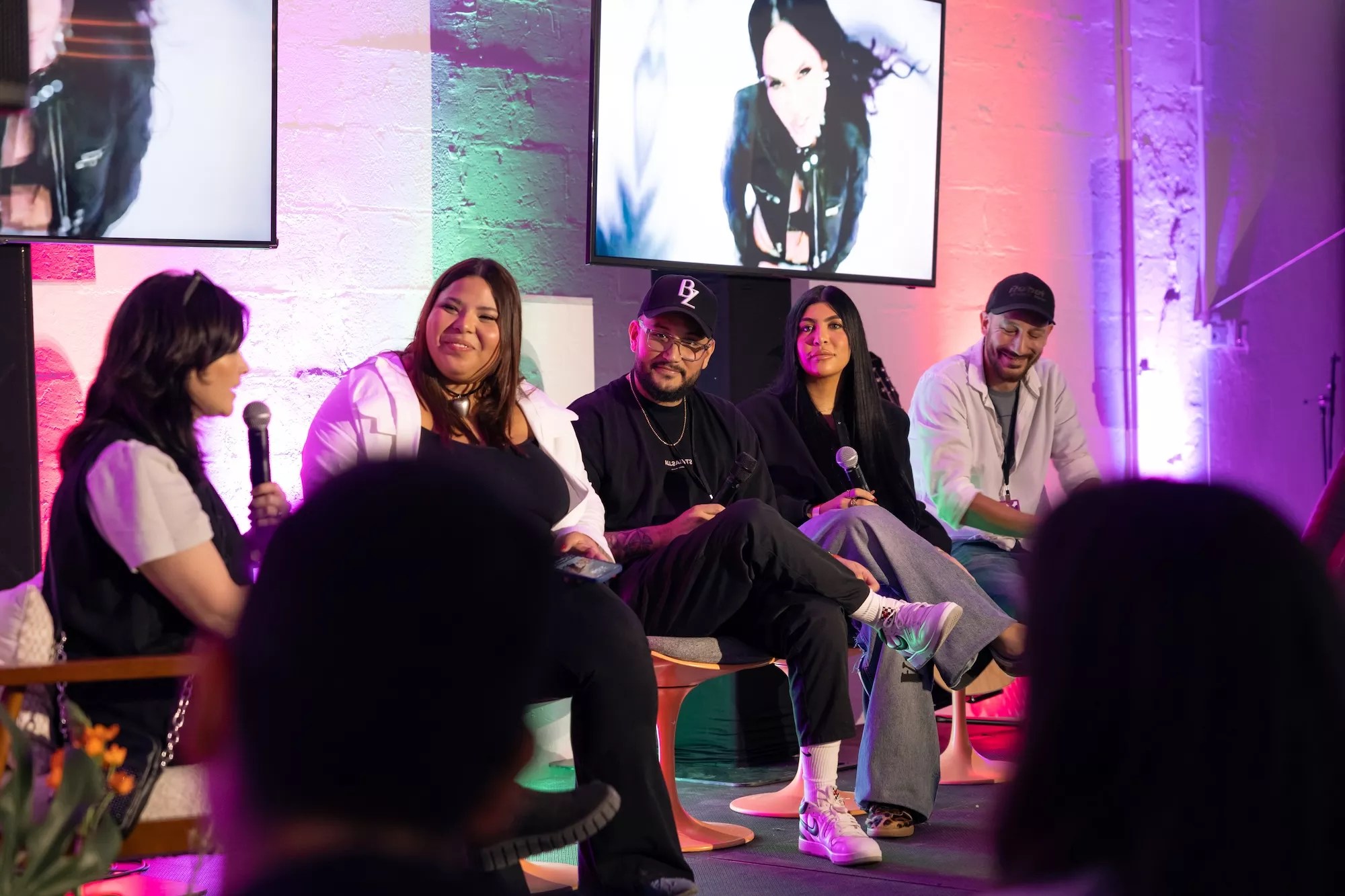
Photo by @directedbyjoce

Audio By Carbonatix
Miami has long been a powerhouse for Latin music, home to global stars, major record labels, and an ever-growing industry presence. But beyond the mainstream success stories, there’s an entire world of artists, producers, and creatives shaping the genre’s future – many of whom remain unseen. That’s where the Unsin Music Conference & Festival comes in.
Now in its fourth edition, Unsin (pronounced “unseen”) isn’t trying to disrupt Latin music’s landscape. It simply is a different kind of festival, one that thrives on genuine connection and artistic risk-taking.
“We needed more spaces that were different from the traditional spaces where people could discover new types of music in an inclusive and authentic way,” says Julian Duque, Unsin’s founder. “At Unsin, you can discover music and connect with people from different industries – mainly creative industries – but also from tech, business, and beyond. It’s a space to educate, make business, and find collaboration opportunities.”
Julian Duque and Azu Olvera, Unsin’s creative directing officer, first connected while working at the Orchard in New York, where they were the only two Latin music executives at the time. While there, Duque explored the idea of launching a Latin music festival. Eventually, he and Olvera moved separately to Miami for new career opportunities, where the idea of Unsin took shape. What began as a one-day event has since grown into a three-day festival, showcasing new music and serving as an educational space for fans looking to navigate and find a place to shape the future of Latin music.
Unsin was built on the idea that Latin music is more than just the mainstream hits heard on the radio. The festival highlights artists who are experimenting with sound, blending genres, and pushing the boundaries of what Latin music can be.

“Unsin is about making space for the full spectrum of Latin music,” says Olvera.
Photo by @directedbyjoce
“Latin music has never been one thing,” Olvera says. “But if you keep selling the same three or four big artists, you’re only showing one side of the culture. The industry talks about Latin culture, but very few actually champion it. Unsin is about making space for the full spectrum of Latin music.”
The festival, running April 24-26 at the Future of Cities Climate and Innovation Hub, blends performances, industry panels, and networking opportunities that make it as much about discovery as it is about entertainment.
This year’s musical lineup reflects that philosophy, showcasing artists defining the next chapter of Latin music. Names like Leo Rizzi, Kat Dahlia, Jona Camacho, and CES stand out, each bringing a distinctive sound that challenges the idea of what Latin music can be. Whether it’s Rizzi’s genre-blurring alt-pop, Camacho’s lush R&B influences, or Dahlia’s raw, bilingual lyricism, the lineup highlights artists expanding the industry’s auditory palette. While you might not find them dominating the charts yet, they define the spirit of a festival built on creativity.
But at Unsin, the music itself is just one part of the experience. The festival is equally committed to conversations that push Latin music forward. This year’s panels dive into some of the industry’s most pressing topics, including mental health in music, film and photography, songwriting and production, creative direction, and record labels and distribution. These discussions aren’t just for industry insiders – they’re designed to provide practical knowledge for artists, professionals, and creatives in an engaging way.
“Unsin is a mixture between a music festival and an education program,” Olvera says. “And that education is not just for people in the industry, but for artists, entrepreneurs, and every single person that is touched by music.”

“Unsin is a mixture between a music festival and an education program,” says Olvera.
Photo by @imninarts
For the first time, Unsin is expanding its reach beyond Miami. This year, the festival’s panels will be livestreamed, allowing artists, industry professionals, and fans around the world to be part of the conversations shaping the future of Latin music. This addition aligns with Unsin’s core mission of making education and industry knowledge more accessible. By livestreaming these discussions, Unsin gives independent artists and aspiring creatives – who may not have the means to attend in person – a chance to learn from industry professionals and engage with ideas that could shape their careers.
That commitment to authenticity extends to the festival’s audience, which is as diverse as the music it showcases. Music lovers of all abilities and interests come together at Unsin, each finding something that speaks to them. “Even if you’re not an artist, there’s something for you,” Olvera says. “Maybe you’re here to hear a new artist you didn’t know, or maybe you’re a young executive trying to decide your next career move.”
Beyond the performances and panels, the festival offers attendees the opportunity to explore a vendor market featuring local artists and creatives, brand activations, and food trucks showcasing Miami’s diverse culinary scene.
As the festival continues to grow, organizers say they are focused on keeping its core mission intact: creating a space for innovation, collaboration, and authenticity in Latin music. “We’ve been flying the plane while building it,” Olvera says. “Every year, we survive, and then we look at all the ways we can improve. That’s what keeps us going.”
Four years in, Unsin isn’t following a blueprint – it’s creating its own.
Unsin Music Conference & Festival. Thursday, April 24, through Saturday, April 26, at Future of Cities Climate and Innovation Hub, 224 NE 59th St., Miami; unsin.live. Tickets cost $55 to $195.